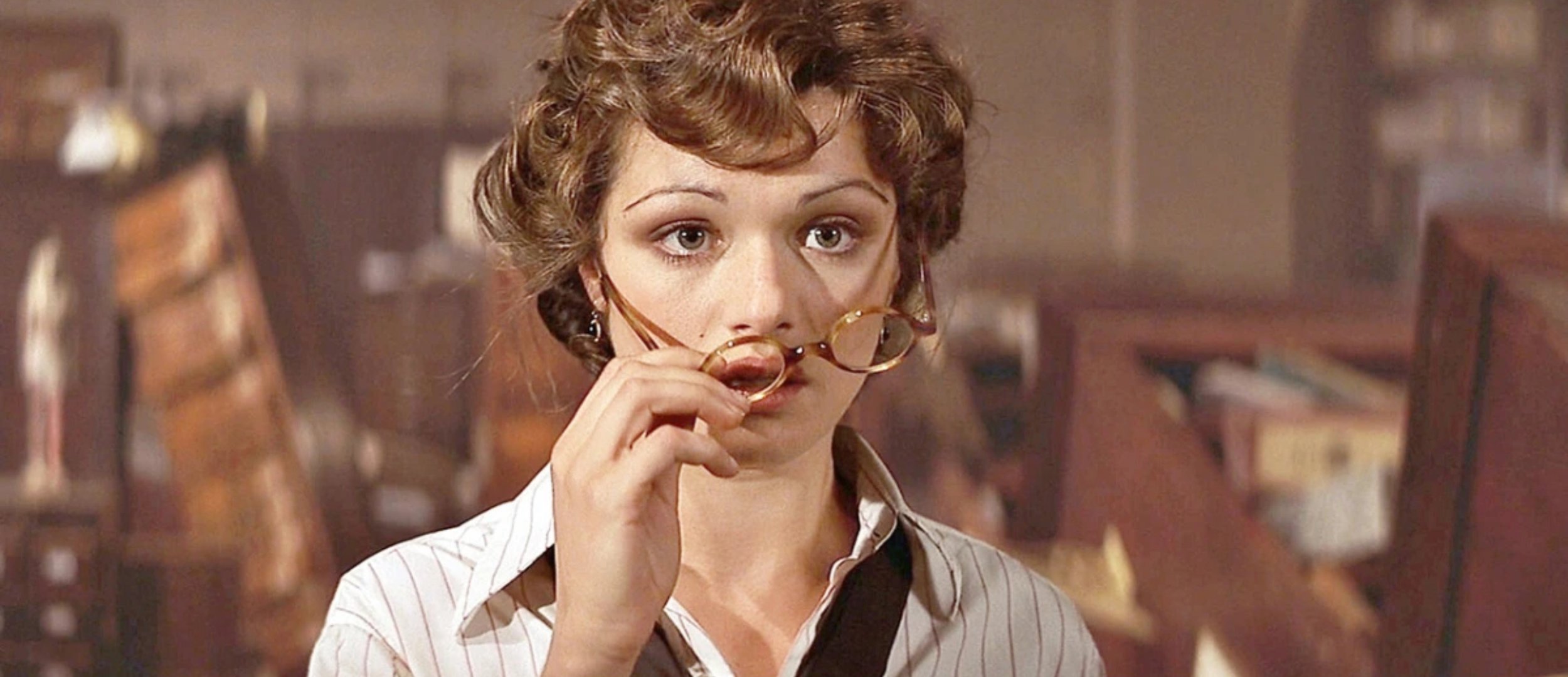The FMC Archetypes: The Nerd
It's been a while since we explored one of the eight classic FMC archetypes. With a new Mean Girls movie hitting theaters across the globe, we figured it was a fitting time to shine a spotlight on The Nerd. After all, would "mean girls” even exist without them?
The Nerd is a very popular archetype among the women with whom The FMC has chatted. By the standard definition, she is someone who begins her journey valuing reputation and academic achievement above all else. Often, those who fall into this category are intelligent, introverted, and, most times, irrationally independent. While there is a lot of crossover between the shy and unassuming Nerd and the kindhearted Girl Next Door, the main difference between the two is that The GND often finds herself at the center of social circles. Without trying, she is friends with everyone and known by all. The Nerd, on the other hand, usually takes up space on the sidelines. She isn't always a loner, but she does keep her circle small. In certain instances, this limited number of companions includes the infamous Femme Fatale, which somehow only serves to highlight The Nerd's place near the bottom of the social hierarchy.
Unlike the other archetypes we have covered, The Nerd is a much newer edition. While the word itself was actually first used by Dr. Seuss in his book If I Ran A Zoo, the stereotype as we know it today did not fall into the mainstream until the mid-1970s when Happy Days and Bill Murray and Gilda Radner’s SNL characters graced screens across America. Over the next two decades, nerdy protagonists and side characters alike grew in number, with Lisa Simpson being one of the first females to appear in this particular genre. The oldest daughter of the beloved cartoon family enjoys being smart and successful (in teenage terms) but also has to deal with feelings of loneliness and isolation from her peers. By the final year of the '90s and into the early 2000s, the Nerd was everywhere, and more often than not, she was front and center. Characters such as Evelyn from The Mummy and Laney Boggs from She's All That turned the heretofore unwanted women into objects of desire, and all it took was a few small cosmetic changes. Their counterparts from a few years later, such as Criminal Minds, Penelope Garcia, and Ugly Betty's Betty Suarez, took their evolution one step further by not making the characters change their appearance more than typical personal growth allowed.
From there, The Nerd has only grown more confident. Much like her predecessors, the modern-day version of this archetype is still very much at home among books, fandoms, and other unconventional social groups. She still values the letters written on her report card, and the future attending a prestigious college could allow, but she now has more agency than she used to. Whereas her old character arcs usually revolved around a physical change, which allowed for her inner beauty to finally shine through, more recent iterations of her character know their worth from the tale's outset. They may still wear glasses or obscure their face with bangs, but they take pride in those decisions, realizing that what they offer the world has value regardless of how "on trend" they are in their everyday.
Today's Nerd is passionate and headstrong, and for more than a handful of reasons, this is a good thing. But it does create personas that are often stubborn and overly self-reliant. Years of having to rely on her intellect as both a means of advancing within society and a tried and true companion in lonelier days have led her to evolve into women who sometimes look down on those around them to whom academics come less naturally or to discount ideas from those they believe to be mentally inferior.
For many women, The Nerd was, is and always will be a comfort archetype. She has always been there as a guide through their lives. From awkward pre-teen crushes into young adulthood and beyond, characters such as Nancy Drew, Hermione, Mia Thermopolis, and Gabriella Montez from High School Musical have been there to pave the way for women who have always felt more comfortable keeping to themselves. The Nerd proves that we can all find a place in the world and that sometimes we just need to accept the person who's been staring back at us from the mirror.








